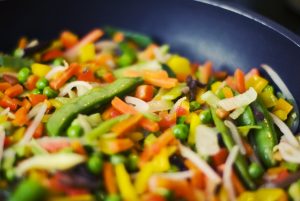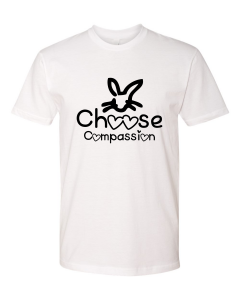Is a Vegan Diet Healthy For Children?
Parents of vegan or vegetarian children often feel like they’re under a microscope. While they might get used to hearing comments about how unhealthy it is or how amazing bacon and cheese is, chances are pretty good that they’ll eventually grow tired of explaining themselves. Below we’ll address the main concerns and the reasons why so many parents choose a vegan diet for their families.
“Isn’t it unhealthy?”
Lately it seems like there are so many articles popping up about how a vegan diet is unhealthy for children. Italian parents could soon be facing jail time for feeding their kids a vegan diet. Yet, respected organizations such as the Academy of Nutrition and Dietetics and the American Academy of Pediatrics still agree that a vegan diet can be perfectly safe and healthy for infants and older children.
“Going vegan made me sick”
Have you ever known someone who tried a vegetarian or vegan diet and it made them so sick that they decided to start eating animal products again? This is more common than you might think.
Sometimes a drastic change in diet can cause “withdrawals” to certain, usually unhealthy, foods. I’ve experienced this first hand. When I was told that one of my daughters could no longer eat gluten, I decided that our whole family would give it up for 30 days to see how we felt. I can tell you honestly that I have never been sicker. For three weeks I felt weak, shaky and sick to my stomach. I almost gave up. However, on week four I suddenly felt better than I have in ages. What I didn’t anticipate was the effect gluten was having on my body and how addicted to it I’d become. I believe that this happens to many people when they go vegan. This is because they give up fast food and other processed foods that contain many unhealthy and horribly addictive ingredients.
However, the main reason that people do not succeed on a vegan diet is because they don’t do it right from the start. If you aren’t giving your body the right fuel, then you’re not going to be healthy. This applies to both vegans and omnivores. People need variety in their diet and they need certain nutrients in order to function well.
“You’ll need to take a lot of vitamins to make up for what you’re missing”
Just like vegans that don’t eat a balanced diet, people that eat meat, dairy and eggs frequently suffer from nutrient deficiencies. Often times these people don’t understand why they are constantly sick. An unhealthy diet leads to a weaker immune system and more illness. For children this means more missed school days, lower test scores and more trips to the doctor. With a properly planned vegan diet, whole foods can meet all of our nutritional requirements.
It’s important for vegans and omnivores to ensure that they are getting enough:
- Vitamin B12
- Vitamin D
- Calcium
- Iron
- Protein
Adequate amounts of these nutrients can be obtained from eating a variety of fruits, vegetables, beans, whole grains, fortified foods and beverages. Infants and toddlers get many of these nutrients from breast milk. Nutritional yeast is an excellent source of Vitamin B12. Many vegans and vegetarians do take supplements to ensure that they are getting enough vitamins. However, this isn’t necessary with a well-balanced, planned vegan diet. Anyone that is concerned about nutritional deficiencies should consult a doctor or nutritionist.
“Meat is healthier for children”
Researchers from the University of Adelaide have found that meat in the modern diet is leading to an increase in global obesity. In fact, they’ve determined that meat contributes to obesity to the same extent as sugar. You can view the study here: https://www.adelaide.edu.au/news/news86602.html
The Center for Disease Control (CDC) states that rates of childhood obesity have more than doubled over the past 30 years. An alarming 70% of obese children have at least one risk factor for cardiovascular disease. In addition, children and adolescents who are obese have a much greater risk for bone and joint problems, sleep apnea, pre-diabetes and social and psychological problems such as low self-esteem and depression. Not to mention that children who are overweight or obese will most likely be obese as adults. View the CDC’s facts about childhood obesity here: https://www.cdc.gov/healthyschools/obesity/facts.htm
Heavy meat consumption increases a person’s chance of dying from all causes including heart disease and cancer. Heavy meat consumption is considered one 6oz steak per day. A study conducted by the National Cancer Institute between 1995 and 2005 found that women that consumed a large amount of meat had a 50% higher chance of dying from heart disease and a 20% higher chance of dying from cancer than those that ate less. Men had a 22% higher chance of dying from cancer and a 27% higher risk of dying from heart disease when they ate large quantities of meat. The researchers noted that meat contains several cancer-causing elements as well as the unhealthiest forms of fat.
The International Agency for Research and Cancer lists processed meats as Group 1 carcinogens. This is the highest warning level that any item can receive. Red meat is classified as a Group 2 “probable carcinogen”. Yet the average school child’s lunch still consists of processed meats and processed cheese. Processed meat makes up 22% of the total meat consumed in the U.S. and red meat makes up 58%. Further details can be found here: https://www.ncbi.nlm.nih.gov/pmc/articles/PMC3045642/
“Every child should get to experience McDonald’s once”
Many parents take their kids out regularly for a fast food treat. In fact, 34.3% of children in America eat fast food at least once every day. Yet, those chicken nuggets that so many kids are gobbling up actually contain more fat than they do protein, with a large portion of that fat being cancer-causing trans-fats. Kids who eat fast food have an increased risk of developing a number of health problems including heart disease, cancer, asthma, rhinitis and eczema.
“Humans are meant to consume meat”
Think about what your child eats every day. Now consider the fact that overweight and obese children have an increased risk for breast, colon, endometrium, esophagus, kidney, pancreas, gall bladder, thyroid, ovary, cervix and prostate cancer. They are also more prone to Hodgkin’s lymphoma and multiple myeloma. Every year, approximately 15,180 kids are diagnosed with cancer. Approximately 1,250 of these kids will die this year alone.
A child does not have to be overweight or obese to be unhealthy. A typical American diet for children increases cholesterol levels to unhealthy levels by as early as ten years old. Doctors are starting to see clogged arteries in kids as young as three years old. Even if your child isn’t overweight, a typical diet full of meat could have severe health implications.
A vegan diet might not be for everyone, but limiting meat consumption is definitely a good first step towards improved health. If you’re still not convinced, please respect those that make this choice for their family. Making decisions for our children is never easy and we need to support each other on this journey.
Do you have vegan or vegetarian kids? Show off your support with one of our T-shirts! Click here to see our shop.
